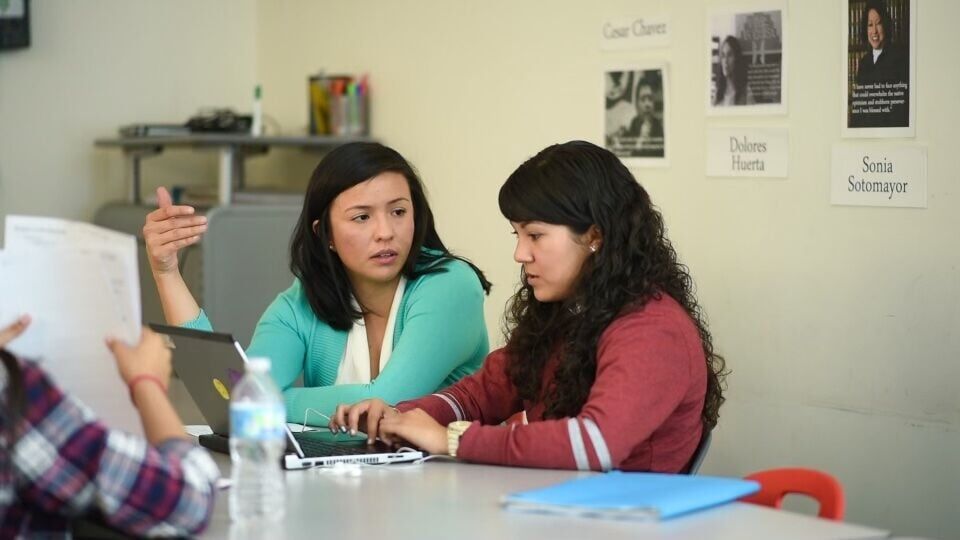Under threat by the courts, DACA turns 11 Thursday

Marissa Molina had a secret.
As a 9-year-old, her parents moved the family to the Colorado Western Slope from Chihuahua, Mexico in 2001. Having been born in Mexico, Molina would concoct excuses for her high school friends about why she couldn’t attend events out of the country or drive. (She told friends she had juvenile arthritis and her parents wouldn’t permit driving.)
“It was very dangerous for people to know you were undocumented,” said Molina, 31. “I lived in constant fear.”
After maxing out credit cards and her options paying out-of-state tuition at Fort Lewis College in Durango, she decided to drop out.
And then President Barack Obama announced an executive action called Deferred Action for Childhood Arrivals, or DACA, that protects eligible immigrants brought to the United States as children from deportation. DACA recipients also receive a work permit.
That was 2012. DACA turns 11 Thursday.
The program has been under threat in the courts. And court watchers believe a case out of Texas challenging the legality of Obama’s executive action could be appealed to the U.S. Supreme Court.
Molina – and other DACA recipients – said the Texas case poses the greatest threat to the program.
A federal judge in Houston is expected to rule – for a second time – that the Obama-era program is illegal, possibly impacting the lives of more than 10,000 enrolled DACA recipients in Colorado.
“DACA allowed me to become a teacher,” said Molina, who taught Spanish in Denver for two years after graduating from Fort Lewis College in 2014.
While the majority of immigrants reside in the country legally, an estimated 10.5 million unauthorized immigrants live in the United States, according to the Pew Research Center.
Their economic impact is substantial.
DACA-eligible residents contribute $391 million to the Colorado economy and pay $43.9 million annually in state and local taxes, according to the Higher Ed Immigration Portal, which uses data and policy analysis to support DACA recipients, refugees and unauthorized immigrants, among others.
Molina, who grew up in Glenwood Springs, is the Colorado state immigration director for FWD.us, a bipartisan nonprofit group that advocates for meaningful reform.
“There’s a lot of really big consequences for our state,” Molina said.
‘It feels like we’re running into a brick wall’
Nationally, there are nearly 600,000 active DACA recipients, 13,180 in Colorado alone, according to U.S. Citizenship & Immigration Services.
Congress has still not found a permanent solution for DACA recipients, often referred to as “dreamers.”
Last week, U.S. District Judge Andrew Hanen heard arguments on the Obama-era program in Houston. The case began as a 2018 lawsuit filed by a coalition of nine states led by Texas that claims DACA is illegal because it confers benefits to unauthorized immigrants that only Congress can authorize.
Hanen ruled the program was illegal in 2021.
That ruling was appealed to the 5th U.S. Circuit Court of Appeals, which affirmed Hanen’s decision, but sent the case back to him after the Biden administration enshrined Obama’s memorandum in federal regulations.
Hanen has not yet made a final ruling.
“If DACA were to end, that would abruptly end the shield from deportation,” said Violeta Chapin, a University of Colorado Law professor in Boulder who teaches criminal and immigration law.
While no one has a crystal ball, Chapin said it is likely that the federal government will simply allow the DACA work permits to expire.
It’s not likely, but possible, that a federal round up would ensue, Chapin said.
There are 145,690 unauthorized immigrants living in Colorado, according to the portal.
Of the roughly 145,000 unauthorized immigrants living in Colorado, 20,055 are DACA eligible.
The overwhelming majority of DACA recipients in Colorado (98%) have graduated high school, according to FWD.us data. Nearly half have attained some college education. And most (81%) work, many in industries with labor shortages that include education and health care.
Some – like Luis Antezana – are entrepreneurs.
Born in Bolivia, Antezana came with his family to the U.S. as a 7-year-old. After a teaching stint in Denver, he created Juntos Community. Founded in 2021 and based in Denver, Juntos Community assists DACA recipients as they navigate the application process.
“We’re preparing for the decision,” Antezana, 31, said of the legal challenge to DACA. “It feels like we’re running into a brick wall, but we want to run even faster.”
DACA advocates argue that dreamers like Molina and Antezana are part of the American fabric and that Congress should remedy their legal status.
Molina and Antezana both blame the inaction of lawmakers – on both sides of the aisle – which has permitted the legal uncertainty to persist.
“DACA has been far from perfect, in my opinion, because it doesn’t convey status,” said Chapin, of UC Boulder. “We need something better than DACA.”
















